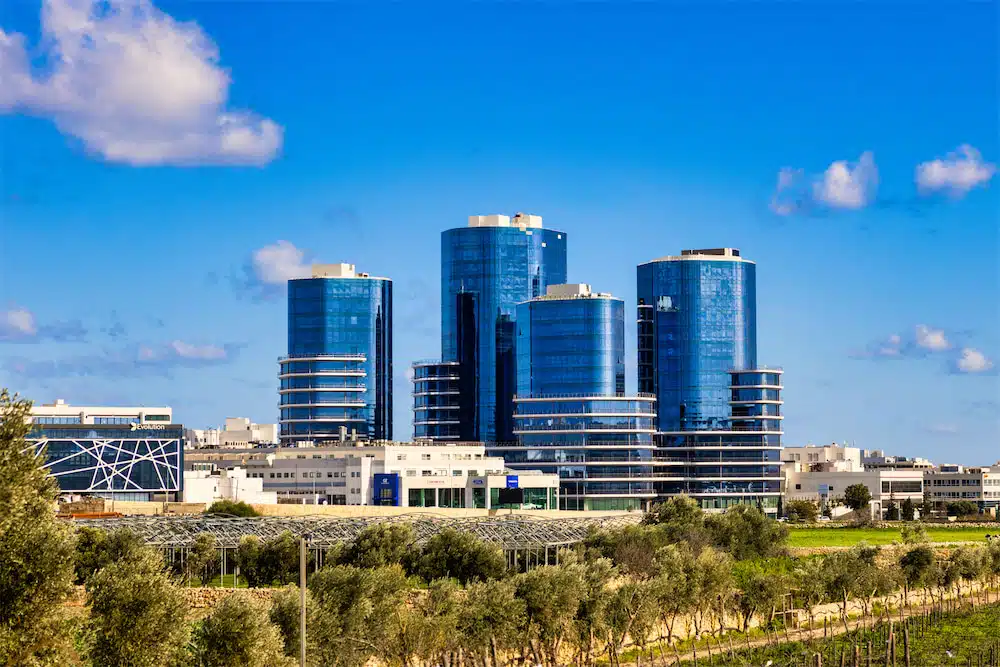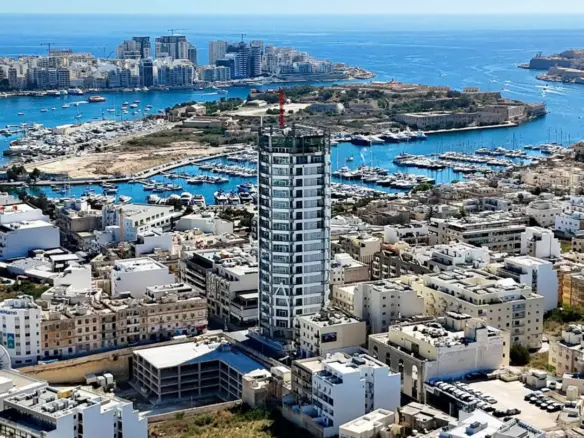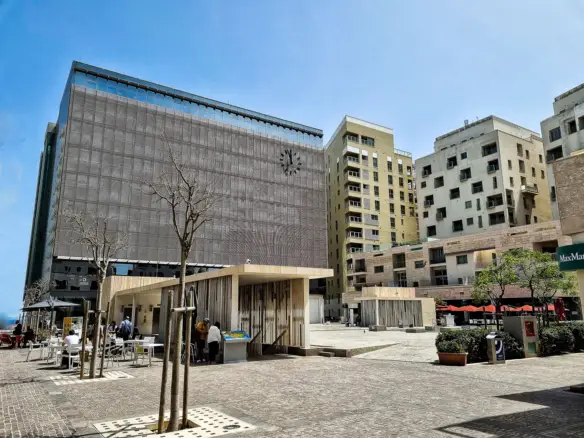Why “green” offices in Malta are no longer optional
In Malta, the shift toward sustainable workplaces isn’t just a design trend – it’s a necessity born out of geography, economics, and culture. As an island nation, Malta depends heavily on imported fuel and building materials, and every spike in global energy prices ripples through to local businesses. Add to this the EU’s increasingly strict environmental directives, and companies find themselves at a crossroads: adapt now, or face higher costs and reputational risk later.
But sustainability isn’t just about compliance. Eco-conscious workplaces are proving to be powerful recruitment and retention tools. Younger generations in particular expect their employers to take environmental responsibility seriously. A well-designed, eco-friendly office signals that a company is forward-looking and cares about employee wellbeing. Natural light, cleaner air, reduced noise, and a balanced temperature don’t just reduce a carbon footprint – they improve productivity and morale.
In other words, the office is no longer just a place to house desks. It’s a competitive advantage in Malta’s property market and a magnet for top talent.
Energy efficiency in offices: more than just swapping bulbs
If you ask most business owners about energy efficiency, the first thing they’ll mention is replacing lightbulbs. LEDs are a great start, but in Malta, where the summer sun pushes air-conditioning units to their limits, the real savings lie in smarter systems.
Take HVAC design. An outdated system that blasts cold air into every corner wastes money and energy. A more efficient option uses inverter technology and demand-controlled ventilation. These systems adjust output based on real-time needs, which avoids overcooling and unnecessary power draw. In one Sliema office, zoning air-conditioning by department reduced energy bills by 25% within a single summer.
Lighting also plays a huge role. Pairing LED systems with daylight sensors and smart timers ensures that artificial light is only used when necessary. This isn’t just about cutting electricity bills—it’s about human health. Offices with abundant natural light see fewer sick days, higher job satisfaction, and longer employee retention.
But energy isn’t the whole story. Saving power is only one side of the sustainability coin. What about water?
Water use and conservation in Malta’s offices
Water scarcity is woven into Malta’s history. With limited groundwater and over-reliance on desalination, every drop counts. Offices that ignore water efficiency risk higher costs and reputational backlash in a country where aquifer stress is a well-known issue.
The good news is that solutions are both simple and effective. Low-flow taps, dual-flush toilets, and sensor-operated fixtures can reduce daily consumption significantly. More innovative approaches include greywater reuse systems, which recycle water for flushing, and rainwater harvesting tanks, now appearing in renovated Valletta office blocks.
Culture matters as much as technology. A coworking hub in Gżira made a bold move by banning bottled water altogether, replacing it with filtered dispensers. The impact was twofold: thousands of plastic bottles avoided each year, and a tangible cut in running costs. In this case, being frugal and being resilient went hand in hand.
From recycling bins to circular office economies
Most offices think they’ve “gone green” once they add recycling bins. But in Malta, where space is tight and imports dominate the supply chain, the real opportunity lies in embracing the circular economy.
Instead of buying cheap, disposable furniture, more businesses are shifting to modular systems that can be repaired, expanded, or refurbished. Imagine a desk system built with recycled materials, designed to grow with the team. That’s what one tech firm in Birkirkara chose – and when they expanded, they only added extensions instead of discarding existing furniture.
Furniture lifecycle choices matter. A modular, repairable system keeps waste out of landfills and reduces the need for fresh imports, while disposable imports generate hidden costs down the line.
Some business owners worry that these choices are expensive. In reality, EU incentives and long-term savings make them more cost-effective than constant replacements. Waste reduction isn’t just an ethical choice—it’s a smarter procurement strategy.
Biophilic design: Malta’s offices bringing the outside in
At first glance, adding plants to an office might seem cosmetic. But biophilic design goes far deeper, tapping into our natural affinity for the outdoors. In Malta, where sunlight is abundant, the approach feels particularly fitting.
Picture a marina-facing office in Ta’ Xbiex with a living green wall filtering air and dampening sound. Or a coworking hub divided by bamboo partitions that add texture and reduce echo. These aren’t gimmicks; they’re productivity tools. Studies show that exposure to natural elements reduces stress, increases concentration, and even lowers absenteeism.
Employees themselves confirm the impact. Many report feeling calmer and more engaged in offices that integrate greenery and natural textures. Biophilic features are not just visual enhancements—they’re psychological comfort systems.
Location, commuting, and Malta’s eco footprint
A sustainable office isn’t only defined by what happens inside. How people get there matters just as much. Malta is still heavily car-dependent, which contributes to congestion and a larger carbon footprint.
Location plays a huge role. Offices within walking distance of bus stops or ferry terminals encourage sustainable commuting. Some companies go further, installing e-bike charging points, offering subsidies for public transport, or setting up carpool schemes. In one Sliema office, simply adding secure bike parking doubled the number of staff cycling to work within a year.
The point is clear: accessibility is part of sustainability. A well-placed office reduces emissions and makes life easier for employees. And if greener commuting options are limited, companies can still offset the footprint of the building itself through renewable energy or carbon reporting.
Materials, furnishings, and finishes: what really makes an office ‘green’
The green credentials of an office don’t stop at energy and water. They extend to what it’s built and furnished with. Malta’s dependence on imports makes sourcing decisions especially important.
Consider finishes: low-VOC paints improve indoor air quality, recycled metal reduces embodied carbon, and sustainable timber helps preserve forests. Reclaimed Maltese limestone has also made a comeback, offering a locally sourced alternative to imported stone cladding.
Design choices matter too. Glass-heavy facades may look modern but overheat in Malta’s climate, pushing cooling costs through the roof. Shaded façades and natural stone, by contrast, reduce heat gain while giving a premium aesthetic. It’s no wonder that many landlords now market “eco fit-outs” as a premium feature, knowing tenants are willing to pay extra for healthier, more efficient environments.
Balancing costs and long-term gains for Maltese businesses
The biggest myth about eco-friendly offices is that they’re unaffordable. While some features—like modular furniture or smart ventilation-cost more upfront, the long-term picture tells a different story.
Energy-efficient systems slash utility bills. Water-saving devices cut operational expenses. Biophilic design improves staff wellbeing, reducing sick days and turnover. Add to this EU funding programs, tax credits, and green grants, and the payback becomes clear.
For landlords, sustainable offices mean higher occupancy and better rents. For tenants, they mean lower overheads and a stronger ability to attract and retain staff. Short-term expense gives way to long-term gain when you view sustainability through the lens of lifecycle cost rather than purchase price.
Culture shift: how staff drive sustainability in Maltese offices
Even the best systems won’t matter without the right culture. Employees are increasingly the ones driving eco initiatives from the ground up. Whether it’s switching to reusable cups, running office-wide green commuting challenges, or forming sustainability committees, staff are shaping workplace behaviour.
One financial services firm in Valletta set up a staff-led committee that introduced waste audits, cut single-use plastics, and reduced energy use by 12% in just one year. None of these changes required heavy investment, but together they created a shift in culture that improved morale as much as sustainability metrics.
When people feel part of the process, they engage more deeply. And when sustainability becomes part of everyday office culture, it’s far more resilient than top-down directives alone.
Tracking and showcasing your impact
The final piece of the puzzle is measurement. It’s not enough to say an office is sustainable—businesses need to prove it.
Smart meters can track energy use in real time, while dashboards display savings. Air quality sensors measure CO₂ levels and ventilation performance. Water monitoring systems identify leaks before they become costly. Together, these tools create a transparent picture of performance.
More Maltese firms are now publishing sustainability data in their annual reports, sharing progress on carbon reductions, waste diversion, and efficiency improvements. This transparency builds trust—not only with regulators, but with staff, clients, and investors.
By tracking impact and communicating results, companies show that eco-friendly offices aren’t just a marketing line. They’re a measurable, ongoing commitment to a better workplace and a healthier island.



